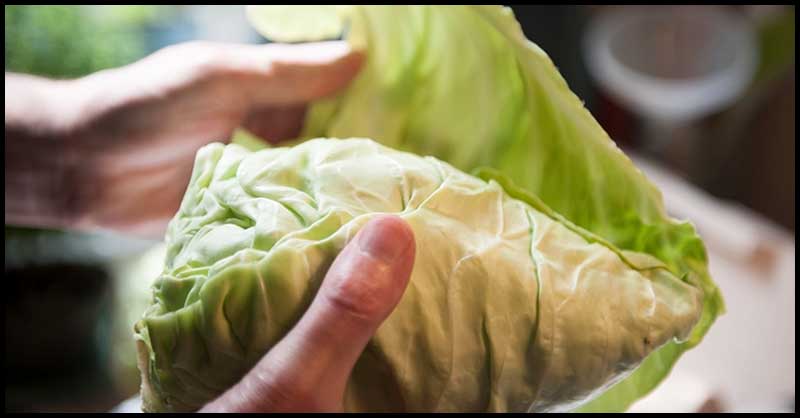Inflammation is simply the body’s way of fighting off diseases, infection, and injury. Our body relies on the inflammatory response to protect against infection or speed up healing. However, chronic inflammation for a long period of time is associated with a number of diseases including inflammatory bowel disease, rheumatoid arthritis, and heart disease (1).
Cabbage And Inflammation
According to a study, cruciferous vegetables including cabbage, broccoli, and Brussel’s sprouts contain antioxidants that can help lower down chronic inflammation (2).
Cabbage is a member of the food family traditionally known as cruciferous vegetables. It is a relative of broccoli, Brussels sprout, cauliflower, and kale. It contains small amounts of micronutrients, including vitamin A, iron, and riboflavin. Moreover, this superfood is considered an excellent source of polyphenols with substantial antioxidant properties associated with the alleviation of oxidative stress and the prevention of free-radical mediated diseases (3).
Cabbage is packed with lots of chemicals that can help ease swelling in our tissues. This helps protect us from other health issues because inflammation is linked to things like cancer, heart disease, diabetes, and Alzheimer’s disease (4).
Present in cabbage is a natural plant compound called sulforaphane. This sulfur-rich component has been shown to provide powerful health benefits. Studies revealed that sulforaphane as well as kaempferol and other antioxidants found in cabbages are likely responsible for their anti-inflammatory effect (5,6).
In addition to this, the veggie also contains anthocyanins and glutamine, both containing anti-inflammatory properties(7).
In one study, researchers found that participants who ate the highest amounts of cruciferous vegetable s had experienced considerably lower levels of inflammation as compared to those who ate the lowest amounts (8).
Other Surprising Health Benefits Of Cabbage
- They are loaded with vitamin C, a potent antioxidant that may protect against heart disease, certain cancers, and vision loss.
- Helps improve digestion due to its richness in fiber
- May help prevent type 2 diabetes
- May provide relief from allergies
Sources:
- https://www.healthline.com/nutrition/benefits-of-cabbage#TOC_TITLE_HDR_3
- https://link.springer.com/article/10.1186/s40816-015-0011-2
- https://www.sciencedirect.com/topics/agricultural-and-biological-sciences/cabbage
- https://www.webmd.com/food-recipes/ss/slideshow-cabbage-benefits
- https://erj.ersjournals.com/content/44/Suppl_58/P3332
- https://pubmed.ncbi.nlm.nih.gov/25147152/
- https://www.livestrong.com/article/205430-how-to-apply-raw-cabbage-leaves-for-the-relief-of-joint-pain/
- https://jandonline.org/article/S2212-2672(13)01891-1/pdf









